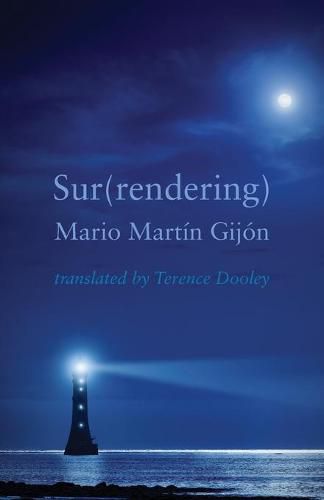Readings Newsletter
Become a Readings Member to make your shopping experience even easier.
Sign in or sign up for free!
You’re not far away from qualifying for FREE standard shipping within Australia
You’ve qualified for FREE standard shipping within Australia
The cart is loading…






This title is printed to order. This book may have been self-published. If so, we cannot guarantee the quality of the content. In the main most books will have gone through the editing process however some may not. We therefore suggest that you be aware of this before ordering this book. If in doubt check either the author or publisher’s details as we are unable to accept any returns unless they are faulty. Please contact us if you have any questions.
Mario Martin Gijon’s (Sur)rendering is a sequence of short pas-sionate lyrics describing a love lost and found. This might sound like nothing new in the history of poetry, but the poet immerses us in his story by a complex process of linguistic recreation: recreation in the sense of re-invention and recreation also as play, or playfulness.
Eduardo Moga explains his method: ‘The poetry of Mario Martin Gijon is characterised by a morphological promiscuity which springs from an intense awareness of the susceptibility of language to experiment. Words become lexical clay in the hands of the poet, or articulated entities into which other words may be telescoped. Words break, unscrew, crumble onto the page like sand. They are like scattered pieces of a mosaic reassembled to form a new puzzle. This is done by the insertion of brackets around letters, slashes allowing a choice between letters, dashes severing or connecting syllables, suffixes or prefixes belonging equally to the words surrounding them. It multiplies the ways in which a phrase can be read, multiplies its potential simultaneous meanings. So the poet is able to juggle the memory of pleasure with present suffering, joy and pain in a single verse: (pre/es/ab)sence. Ambiguity striving for synchronicity, the language of love becoming as fraught with contradiction as love itself.
$9.00 standard shipping within Australia
FREE standard shipping within Australia for orders over $100.00
Express & International shipping calculated at checkout
This title is printed to order. This book may have been self-published. If so, we cannot guarantee the quality of the content. In the main most books will have gone through the editing process however some may not. We therefore suggest that you be aware of this before ordering this book. If in doubt check either the author or publisher’s details as we are unable to accept any returns unless they are faulty. Please contact us if you have any questions.
Mario Martin Gijon’s (Sur)rendering is a sequence of short pas-sionate lyrics describing a love lost and found. This might sound like nothing new in the history of poetry, but the poet immerses us in his story by a complex process of linguistic recreation: recreation in the sense of re-invention and recreation also as play, or playfulness.
Eduardo Moga explains his method: ‘The poetry of Mario Martin Gijon is characterised by a morphological promiscuity which springs from an intense awareness of the susceptibility of language to experiment. Words become lexical clay in the hands of the poet, or articulated entities into which other words may be telescoped. Words break, unscrew, crumble onto the page like sand. They are like scattered pieces of a mosaic reassembled to form a new puzzle. This is done by the insertion of brackets around letters, slashes allowing a choice between letters, dashes severing or connecting syllables, suffixes or prefixes belonging equally to the words surrounding them. It multiplies the ways in which a phrase can be read, multiplies its potential simultaneous meanings. So the poet is able to juggle the memory of pleasure with present suffering, joy and pain in a single verse: (pre/es/ab)sence. Ambiguity striving for synchronicity, the language of love becoming as fraught with contradiction as love itself.